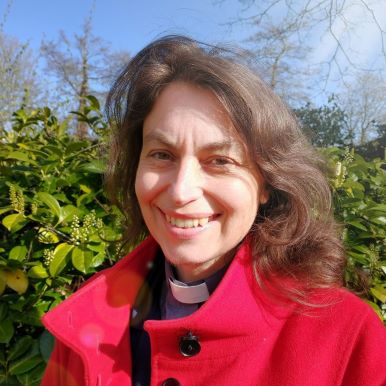Is God wild?
 I wonder how much you have thought about the wilderness as a rich ecological and spiritual category? Of course, we are used to referencing the wilderness during the season of Lent, but how much do we relate that to actual wilderness places and their importance to the ecosystem?
I wonder how much you have thought about the wilderness as a rich ecological and spiritual category? Of course, we are used to referencing the wilderness during the season of Lent, but how much do we relate that to actual wilderness places and their importance to the ecosystem?
Isabella Tree begins her book Wilding: The return of nature to a British farm (recently made into a documentary film) with a quote from Inversnaid, one of Gerald Manley Hopkin’s poems:
What would the world be, once bereft
Of wet and wildness? Let them be left,
O let them be left, wildness and wet;
Long live the weeds and the wilderness yet.
The wild as a category in the human imagination is vital if we are to recover a sense of the importance of the non-human world. It comes at a time when true wilderness has almost completely disappeared from our planet. Robert MacFarlane writes in his book The Wild Places that ‘wildness is an expression of independence from human direction, and wild land can be said to be self-willed land’. He also comments that even though wildness is often portrayed as threatening, dangerous and the opposite of civilization, an alternative tradition sees it as ‘the realm of miracle, diversity and abundance’.
It is worth noting that Moses is said to encounter God ‘beyond the wilderness’ (Exodus 3.1. the King James translation, ‘backside of the desert’ is even more evocative!). It is here at ‘the other side of wilderness’ that Moses encounters God in the burning bush. This suggests that to meet with God requires a journey far away from our daily habits and from human domains of control. In the Old Testament God dwells on the mountain, God’s own mountain and Moses talks with God in the cover of cloud. God communicates but on God’s own terms; and travelling beyond our comfort zones has been part of the Christian understanding of pilgrimage for hundreds of years.
God is not domesticated, nor does he arrive at the bidding of humans. God’s ultimate freedom and autonomy saves us from the human imagination which is limited and corrupted. We could argue that God is wild – in that God cannot be tamed or controlled or submitted to human will. It is in the autonomous life of God’s creation that we are able to perceive something of the truth, beauty and freedom of God. Such wildness as an attribute of God is captured in the enigmatic figure of John the Baptist – who ate locusts and wild honey. And it manifests itself in the Christian tradition through the longing for solitude, silence and asceticism, in the tradition of the desert fathers and mothers. We need places to go where we are radically challenged by human surrender to what is: to gift and givenness.
How might you embrace ‘the wild’ this Season of Creation?
Rev’d Imogen Nay
The Rev'd Imogen Nay, Bishop's Advisor for Climate, is Vicar of St Paul's Church in Cambridge. Previous to this she ministered in parishes in South London and the Midlands, and was a residentiary Canon at Chelmsford Cathedral.
Imogen's reflection is a shortened version of what she preached at Ely Cathedral on Environment Sunday 2024.
References:
https://www.faraday.cam.ac.uk/churches/church-resources/posts/resources-for-outdoor-worship/
https://www.wildingmovie.com/
